Asthma and allergens are closely linked, as many asthma symptoms are triggered by exposure to specific allergens. Understanding what allergens are, how they affect your asthma, and how to manage exposure can significantly improve your asthma control and quality of life. Let’s explore everything you need to know about asthma allergens.
What Are Allergens?
Allergens are substances that can trigger an allergic reaction in some people. For individuals with asthma, exposure to allergens may lead to airway inflammation, increased mucus production, and difficulty breathing. These reactions can range from mild to severe, depending on the individual’s sensitivity and level of exposure.
Common Asthma-Triggering Allergens
- Dust Mites:
- Microscopic creatures found in household dust.
- Thrive in bedding, carpets, upholstered furniture, and curtains.
- Symptoms: Sneezing, wheezing, and coughing after exposure.
- Pollen:
- Released by trees, grasses, and weeds, especially during spring and fall.
- Symptoms: Seasonal asthma symptoms like runny nose, itchy eyes, and shortness of breath.
- Mold:
- Fungi that grow in damp, humid environments such as bathrooms, basements, and kitchens.
- Symptoms: Nasal congestion, wheezing, and asthma attacks.
- Pet Dander:
- Tiny flakes of skin shed by cats, dogs, and other animals.
- Symptoms: Sneezing, itchy eyes, and tightness in the chest.
- Cockroaches:
- Proteins in cockroach saliva, feces, and body parts can trigger asthma.
- Symptoms: Persistent wheezing and coughing.
- Food Allergens:
- Common triggers include nuts, shellfish, eggs, and dairy.
- Symptoms: Hives, difficulty breathing, and, in severe cases, anaphylaxis.
How Allergens Trigger Asthma
When allergens are inhaled or come into contact with sensitive individuals, the immune system overreacts and releases chemicals like histamine. This can cause airway inflammation, tightening of muscles around the airways, and excess mucus production—all of which make it harder to breathe. In asthma sufferers, this reaction can lead to:
- Frequent coughing or wheezing.
- Shortness of breath.
- Full-blown asthma attacks in severe cases.
Diagnosing Allergies That Affect Asthma
If you suspect allergens are worsening your asthma, it’s essential to identify specific triggers. Consult your doctor or allergist for diagnostic tests, such as:
- Skin Prick Test: A small amount of allergen is introduced into the skin to check for a reaction.
- Allergy Blood Test: Measures your immune system’s response to specific allergens by detecting antibodies in your blood.
These tests can help pinpoint which allergens to avoid and guide your asthma management plan.
Tips to Minimize Allergen Exposure
1. Control Dust Mites
- Use dust-proof covers on pillows and mattresses.
- Wash bedding weekly in hot water.
- Vacuum regularly with a HEPA filter vacuum cleaner.
2. Manage Pollen Exposure
- Keep windows closed during high-pollen seasons.
- Use air purifiers indoors.
- Shower and change clothes after being outside.
3. Prevent Mold Growth
- Fix leaks and reduce indoor humidity to below 50%.
- Clean moldy areas with a mixture of water and detergent.
- Use exhaust fans in bathrooms and kitchens.
4. Reduce Pet Dander
- Bathe pets regularly and keep them out of bedrooms.
- Clean floors and furniture frequently.
- Consider hypoallergenic pet breeds if you’re sensitive.
5. Address Cockroach Allergens
- Keep your home clean and free of food crumbs.
- Use cockroach traps or hire pest control services.
- Seal cracks and crevices in walls or floors.
6. Avoid Trigger Foods
- Read food labels carefully.
- Inform restaurant staff about your allergies when dining out.
- Carry an epinephrine auto-injector if you have severe food allergies.
Managing Asthma Symptoms Caused by Allergens
Even with careful avoidance, it may be impossible to eliminate all exposure to allergens. To manage symptoms effectively:
- Follow your asthma action plan.
- Take prescribed controller medications regularly.
- Keep reliever inhalers handy for emergencies.
- Consider allergy immunotherapy (allergy shots) to reduce sensitivity over time.
Final Thoughts
Understanding and managing asthma allergens is a vital part of controlling your asthma. By identifying your specific triggers, taking preventive measures, and adhering to your treatment plan, you can significantly reduce the impact of allergens on your daily life. Remember, knowledge and preparation are your best tools in preventing asthma symptoms and attacks. If you’re unsure about your triggers, consult your doctor to start your journey toward better asthma management.












